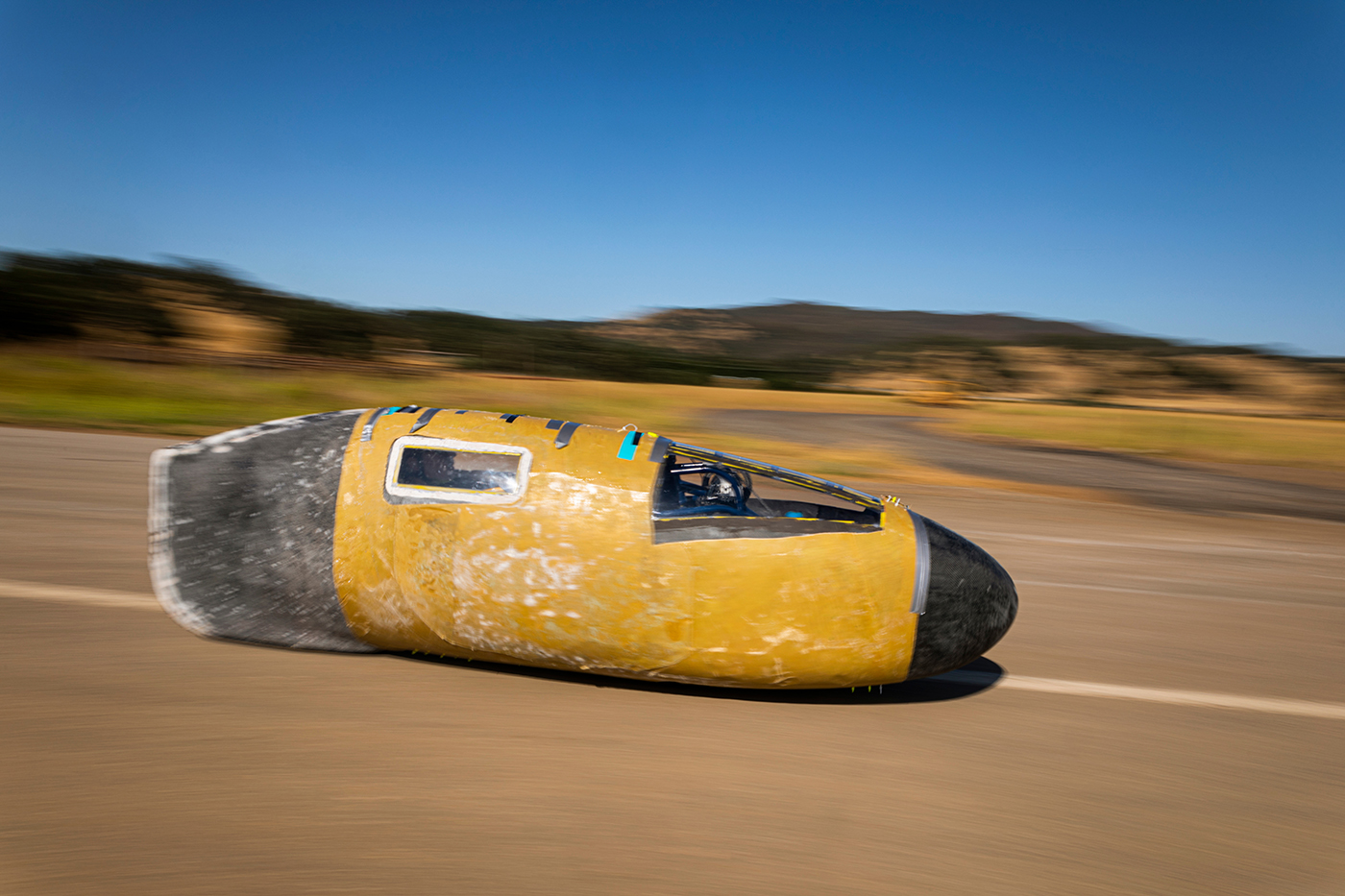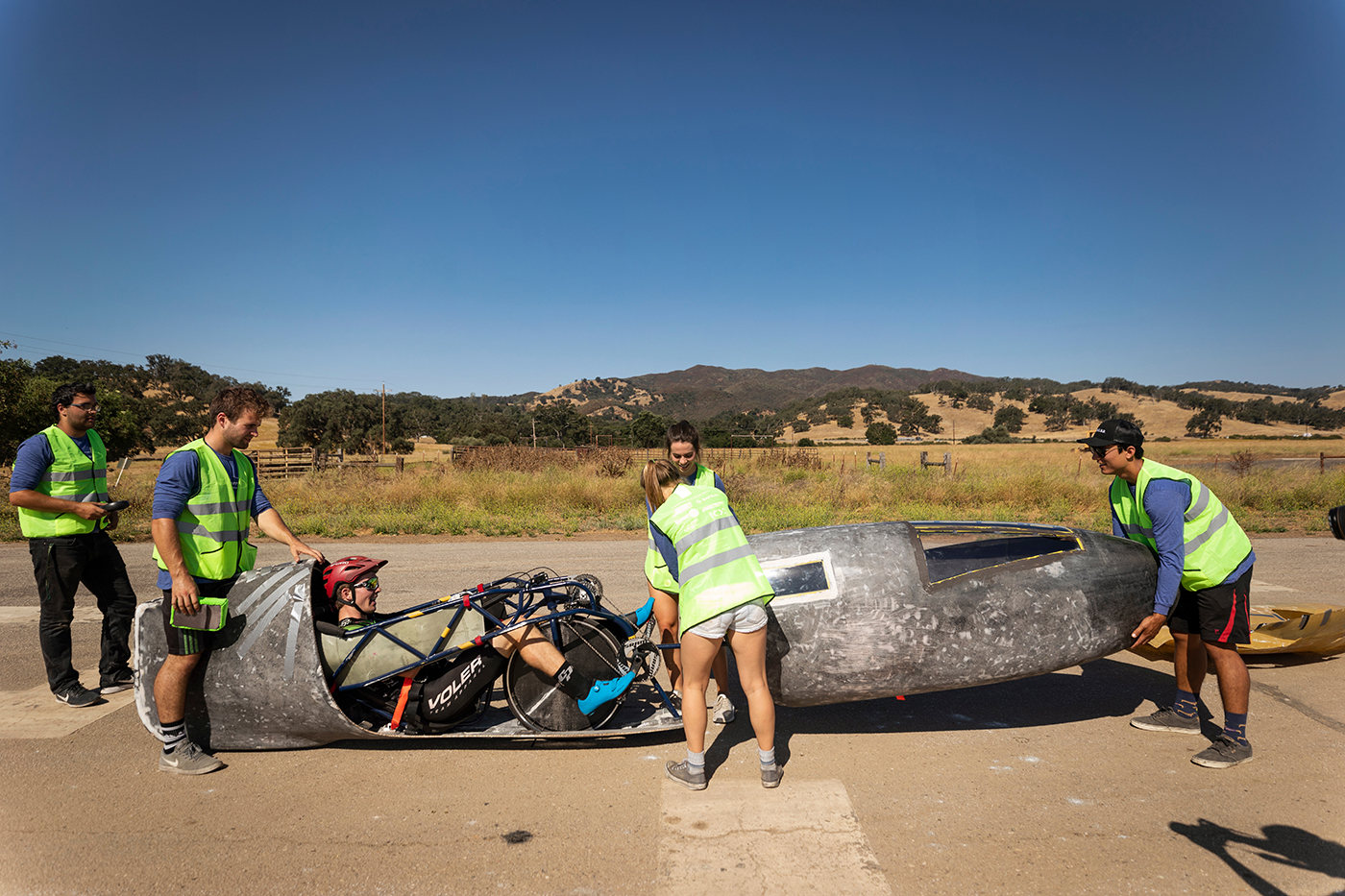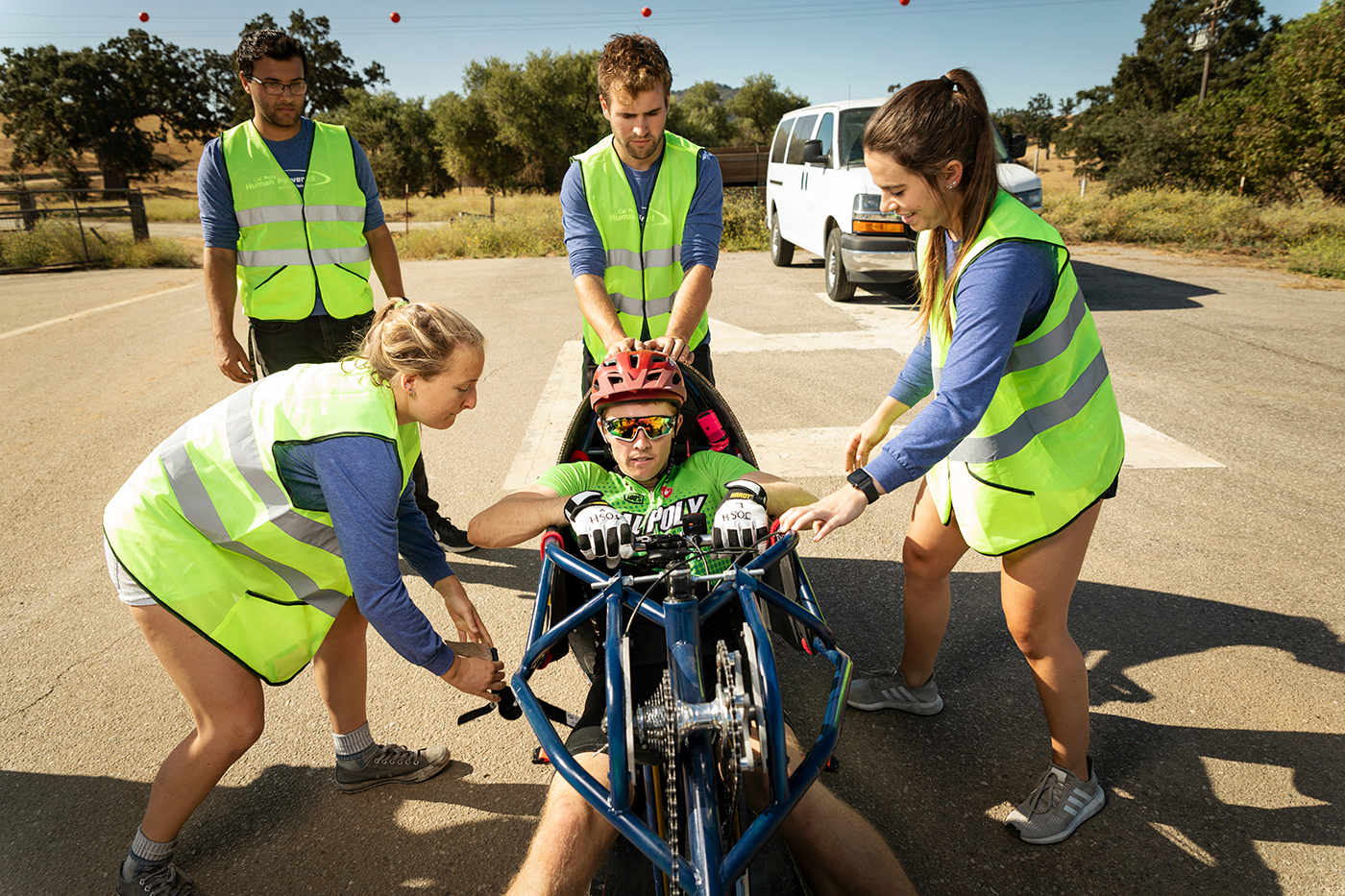Cal Poly shattered a record held for the past 27 years on Sept. 13 with a vehicle powered entirely by muscular strength.
During the 20th annual World Human-Powered Speed Challenge at Battle Mountain, Nevada, The Cal Poly Human Powered Vehicle Team set the American collegiate speed record at 63.68 mph. The previous record was 61.29 mph, set by a team from UC Berkeley in September 1992, according to the International Human Powered Vehicle Association (IHPVA).
This was the first time the Cal Poly club had competed in the world challenge in a decade, according to a news release. The university was one of the only U.S. college teams at the event, competing primarily against experienced enthusiasts and international graduate teams, according to the club.
Cal Poly’s vehicle, named Ambition, competed against other enclosed bicycles that were designed, built and ridden by students.
The course is a perfectly straight, flat, 5-mile section of state Route 305 that has been specially paved for human powered vehicle competition. Organizers call Battle Mountain one of the straightest, flattest and smoothest roads in the world.
Competitors are timed over a 200-meter distance after reaching their maximum velocity on the course, according to IHPVA.

Ambition
The Cal Poly vehicle was custom built for biochemistry senior Josh Gieschen.
Splitting into groups, the student team spent the past year designing, engineering and manufacturing the vehicle. The vehicle is a bike covered with an aerodynamic bullet-shaped shell. The exterior is made out of carbon fiber and Kevlar and manufactured in-house at the two Cal Poly machine shops, the Aero Hangar and Mustang 60.
Mechanical engineering senior Kyra Schmidt said in a news release that the team had to make significant changes in the days leading up to the race.
“We had issues, but we knew we had time to fix them,” Schmidt said.
However, Schmidt said she gained confidence just before leaving for the Nevada race when the team had a promising test run.

The competition
Battle Mountain is primarily a race for speed. In past years, Cal Poly vehicles were designed to travel through a course that included tight turns and obstacles. This sacrificed speed in favor of versatility.
To have a qualifying run, wind speeds cannot exceed 3.7 mph, mechanical engineering senior Derek Fromm said. During their week in Battle Mountain, Ambition surpassed the record at 66.43 mph, but was disqualified because of too much wind.
On their last day at the competition, Cal Poly had one last opportunity to break the record before wind picked up in the evening.
“It was literally our last chance,” Fromm said.
In the team’s last of 10 runs, Gieschen continued to increase speed and broke the long held record.
After the speed was clocked, Ambition crashed at approximately 50 mph — rolling over. Fromm said the driver walked away with just a couple of small bruises and nothing broke on the bike.
“We are all super proud of everything [Gieschen] and the team accomplished,” Schmidt said.
Next year, the team is shooting for 70 mph — a record Schmidt said the team is confident they can pull off.
“We are excited to continue improving and come back even better next year — but first, we can all take a well-deserved break,” Schmidt said.

